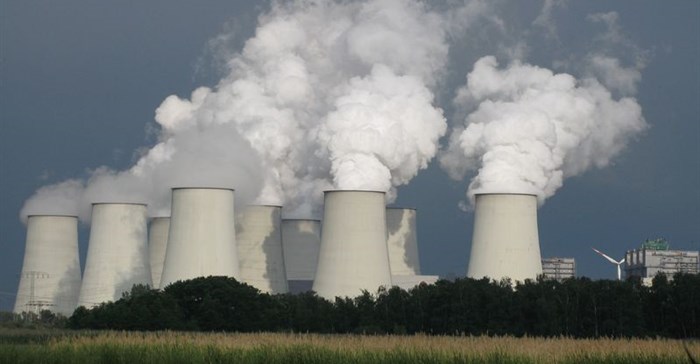
Top stories






More news












Logistics & Transport
Maersk reroutes sailings around Africa amid Red Sea constraints




If warming reaches 2.5° C (4.5° F) over pre-Industrial Revolution levels by 2100, investments worth some $2.5tn (€2.2tn) may be in danger, a team reported.
This was equal to half the current estimated stock market value of fossil-fuel companies.
But even if the 2°C warming agreed by the world's nations in Paris last December is achieved, the value of assets at risk would be $1.7tn, they wrote in the journal Nature Climate Change.
Climate change can destroy assets directly through sea-level rise for example, by depreciating their value, or by disrupting economic activities lower down the chain through drought or freak storms.
A lot of research has focused on the oil, coal and gas investments that will be lost if the world turns its back on fossil fuels in favour of sustainable energy in line with the 2°C target.
The new study attempts to break new ground with the first-ever estimate of a direct impact of climate change on the value of financial assets themselves.
The projections, using mathematical models, were based on an estimated value of $143.3tn for global non-bank financial assets in 2013, as determined by the Financial Stability Board watchdog, the team said.
At warming of 2.5°C, they wrote, some 1.8% of global financial assets could be at risk.
But this could rise to as much as $24tn in worst-case-scenario warming.
Scientists estimate we are on course for warming of about 4°C or more based on current greenhouse gas emission trends, or about 3°C if nations meet the emissions-curbing pledges they filed to back up the Paris climate agreement.
"When we take into account the financial impacts of efforts to cut emissions, we still find the expected value of financial assets is higher in a world that limits warming to 2°C," said co-author Simon Dietz of the Grantham Research Institute on Climate Change.
"This means risk-neutral investors would choose to cut emissions, and risk-averse investors would be even more keen to do so."
Climate change should be an important issue for all long-term investors, such as pension funds, as well as financial regulators, added Dietz.
Sabine Fuss of the Mercator Research Institute on Global Commons and Climate Change in Berlin, said it was not the final word on the topic, but the study did demonstrate that climate risks to the financial system may be substantial.
"This undermines both the need for full disclosure so that climate risks can be assessed and portfolios adjusted accordingly, and the need for more research to develop comprehensive estimates of the risk of such losses," she wrote in a comment published by the same journal.
Source: AFP

For more than two decades, I-Net Bridge has been one of South Africa’s preferred electronic providers of innovative solutions, data of the highest calibre, reliable platforms and excellent supporting systems. Our products include workstations, web applications and data feeds packaged with in-depth news and powerful analytical tools empowering clients to make meaningful decisions.
We pride ourselves on our wide variety of in-house skills, encompassing multiple platforms and applications. These skills enable us to not only function as a first class facility, but also design, implement and support all our client needs at a level that confirms I-Net Bridge a leader in its field.
Go to: http://www.inet.co.za